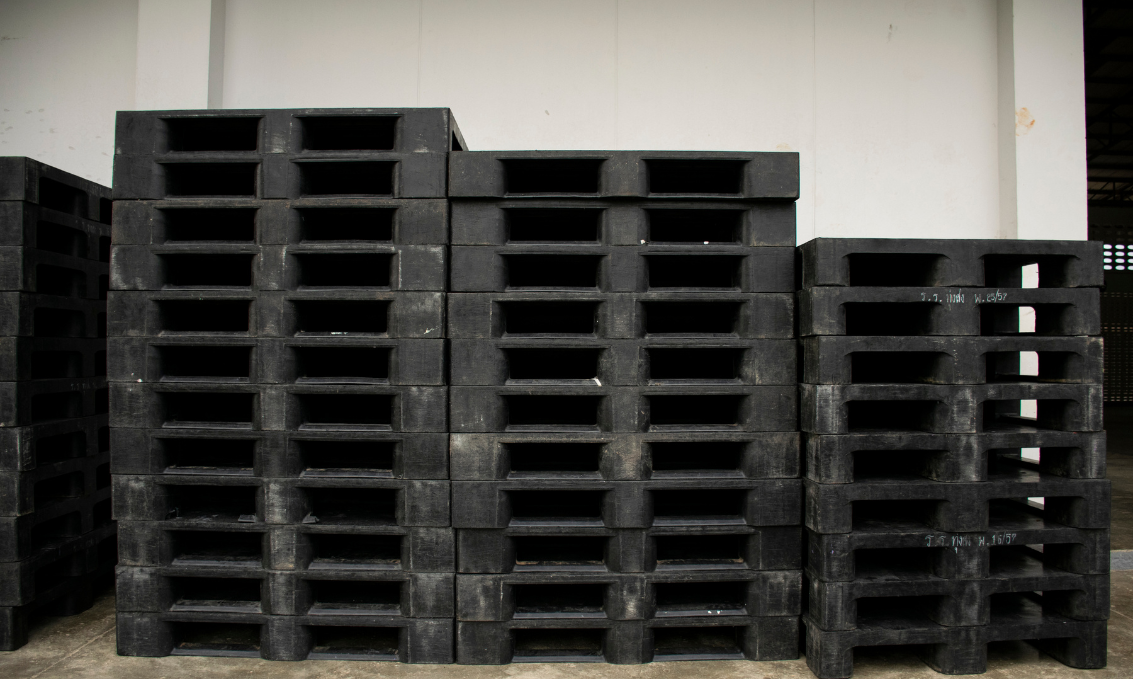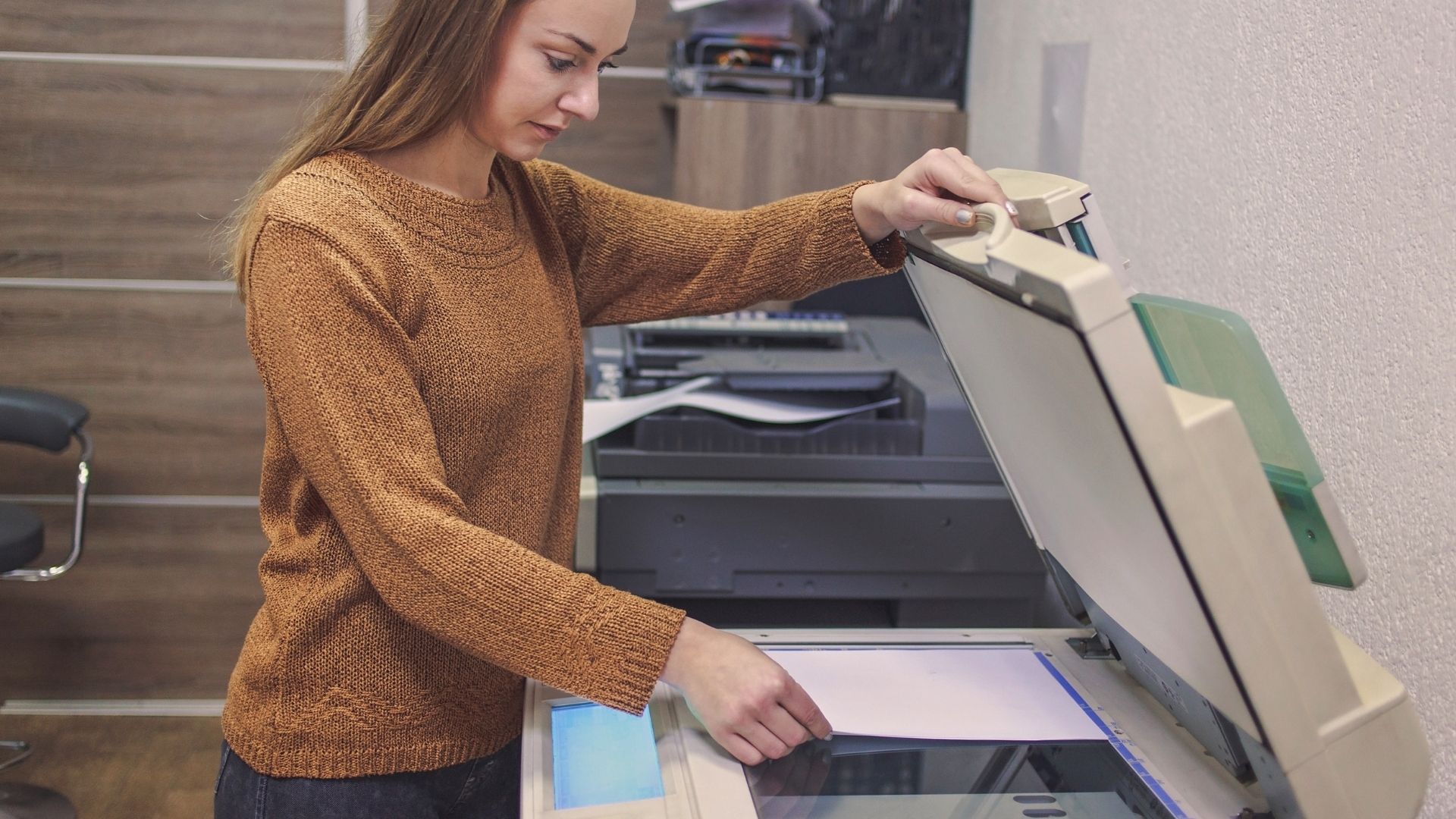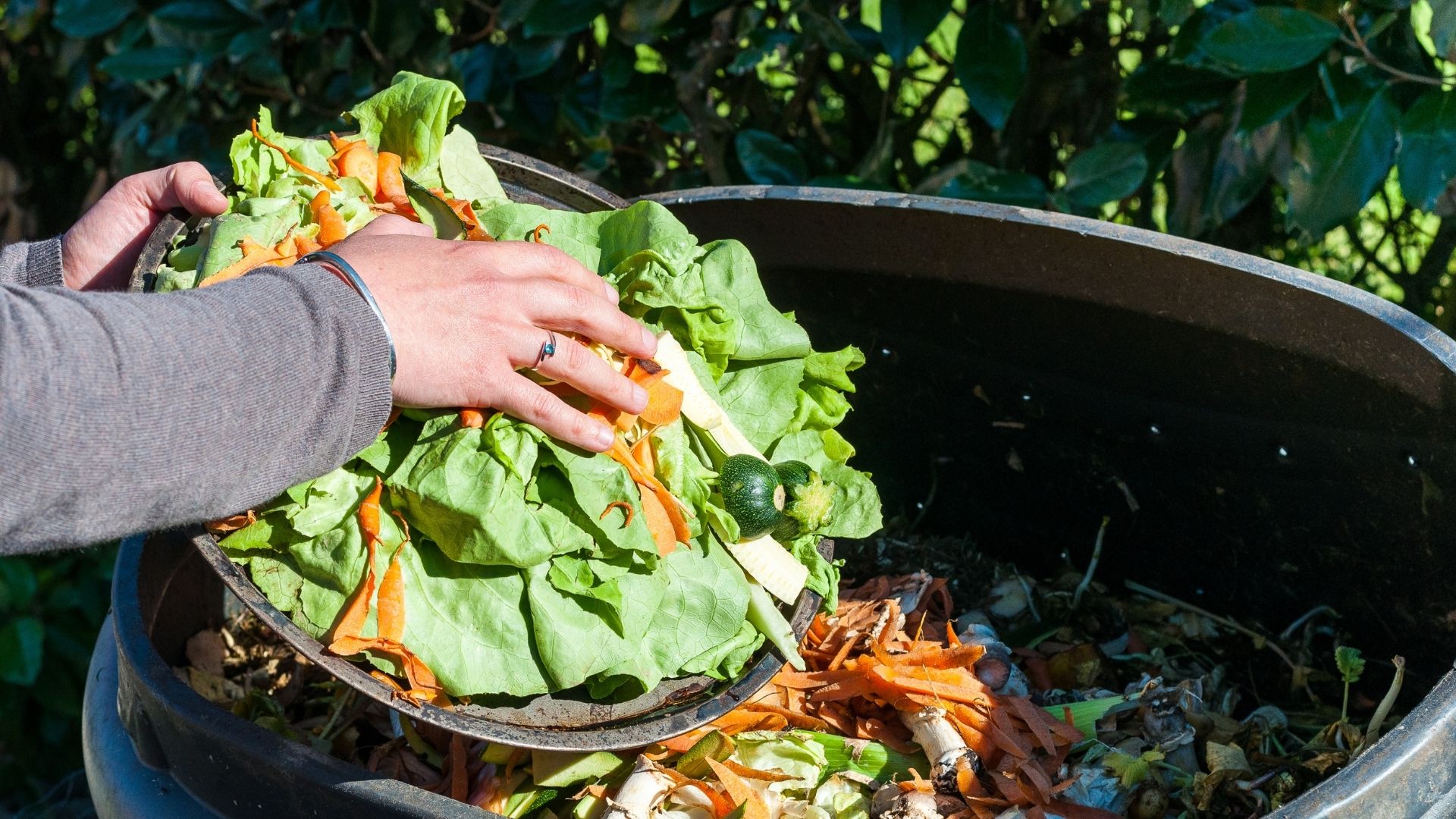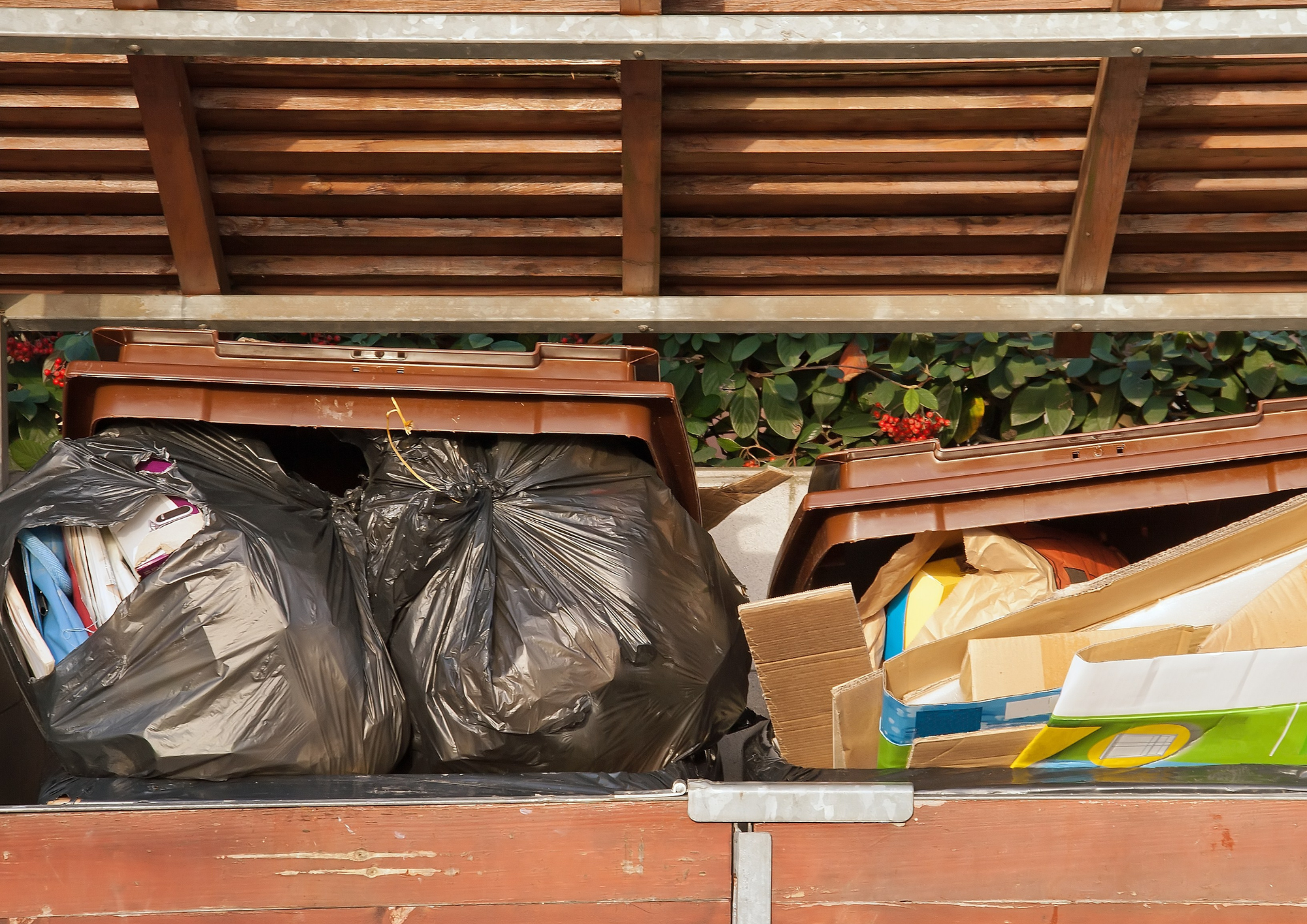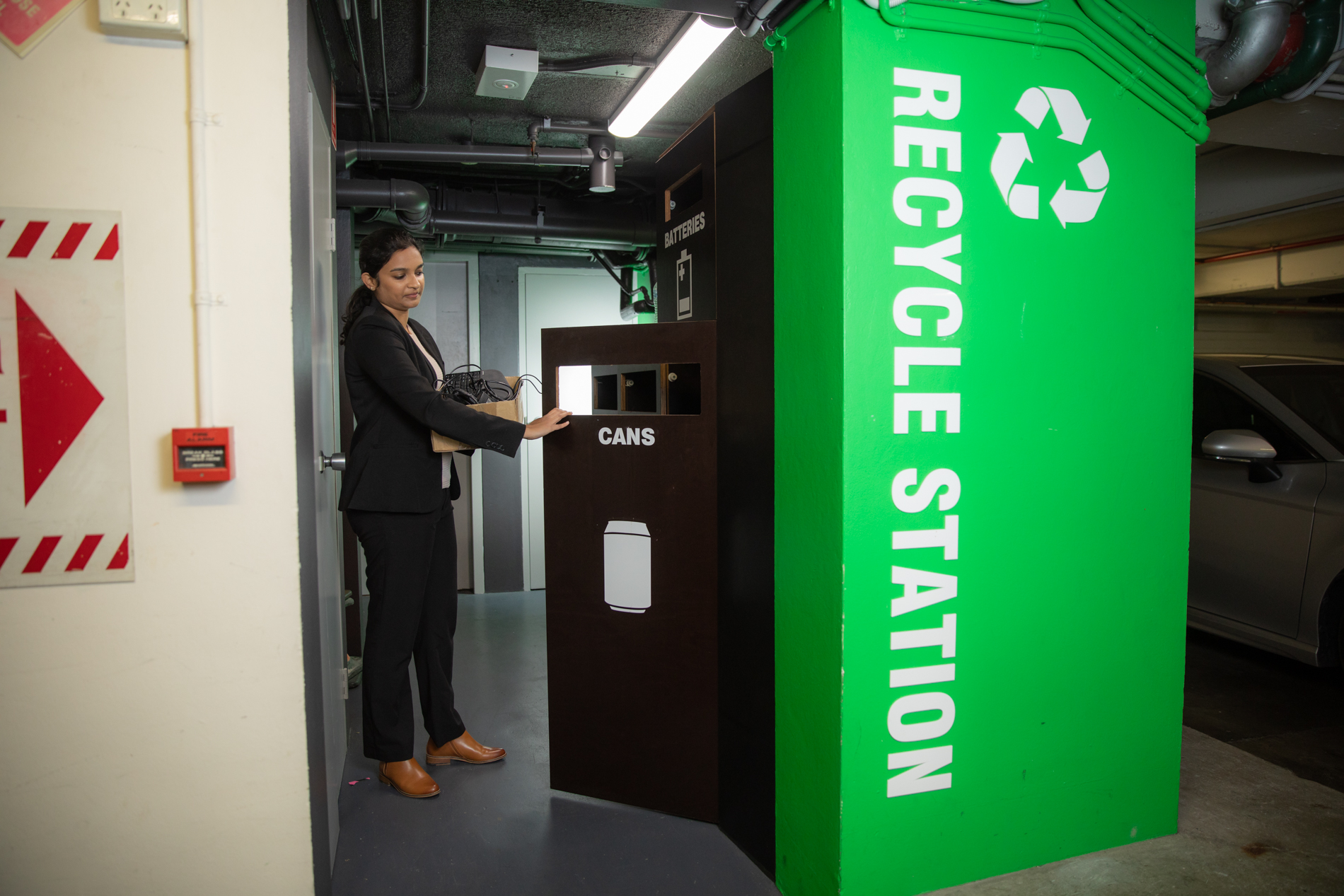SUSTAINABLE BUSINESS
Avoid fines for supplying single-use items
Trying to get your head around the Single-Use Plastics Ban? Here’s our top pick of handy tips and resources.
The ban on single-use plastics was introduced on 1st September 2021. Its aim – to eliminate single-use plastic from our lives. For Brisbane organisations, this means changing the type of products you purchase from suppliers and learning how to give your customers the right information. To help with your business transition away from single-use plastics (and to avoid unwelcome fines), we’ve gathered some answers to common questions you may have.
What items are banned?
Brisbane businesses (except exempt businesses like pharmacies and medical clinics) can no longer purchase or supply single-use straws, stirrers, cups, plates, bowls and cutlery. This includes polystyrene takeaway cups and containers. The ban does not apply to shelf-ready pre-packaged food and beverage items that are delivered in plastic packaging.
What happens if I purchase or supply a banned item?
You could be fined up to $6,892.50 (50 penalty units) for supplying a banned plastic item, or providing false information about an item. This includes saying that an item is compostable if it isn’t. You need to provide clear, written information about all disposable items you have on hand and whether the items you supply are compostable.. If you don’t do this you could be fined. There is a hotline for reporting businesses that are not doing the right thing, so it really pays to know your stuff.
To help your team, you could ask your supplier for some simple information outlining how to dispose of each item they sell to you and display this in a visible location for staff and customers to see.
What can we use instead of plastic?
Offer affordable reusable options
Signage for your business
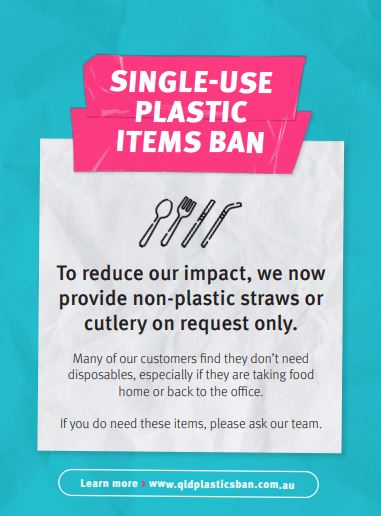
Let customers know why you are encouraging them to use reusable containers and cutlery.
Before exploring non-plastic disposable items, ask yourself – can I offer reusable options instead?
The National Retail Association has some great tips for incorporating more reusable items into your operation. With the higher cost of many disposable non-plastic items, this is an excellent way to reduce the cost impact of the single-use plastics ban.
“Businesses can reduce overall costs by reducing the amount of disposable items you give away, by placing them out of reach and only available on request, or by changing to reusable, washable items if customers dine onsite,” says the National Retail Association.
“You may even want to trial selling reusable items to not only reduce costs, but to promote your brand position. For example, camping-style cutlery sets can be purchased at department stores for as little as $1. Many cafes sell reusable cups or offer a discount to customers who BYO”. Some promotional product suppliers in Brisbane already offer custom-branded bamboo cutlery sets for less than $5 a set for orders of 50. Here are some signs you can display to let customers know why you are encouraging them to use reusable containers and cutlery.
Save these signs that you can display to let customers know why you are encouraging them to use reusable containers and cutlery.
Look for non-plastic alternatives
If you really need to offer some disposable items, look for items made from sugarcane, paper, pulp or bamboo. Always check they are food safe, and suitable for holding the item you intend to place in it (e.g. hot liquids). Non-plastic items are usually more expensive than their plastic counterparts, but you can take steps to reduce this cost. Lined boxes can hold hot foods but cost more than unlined boxes which are typically used for cold foods, like cakes. By ordering both and educating your staff about the difference, you can can keep costs down.
What’s more, use a good distributor rather than buying directly. It may be easy to order all your packaging products at the same time as your uber eats bags, but these products tend to cost more. Look instead for a local distributor with competitive prices. Distributors buy in bulk giving them better prices they can pass on to their customers. Other business owners and local business associations can be a great resource when it comes to finding a good supplier or distributor.
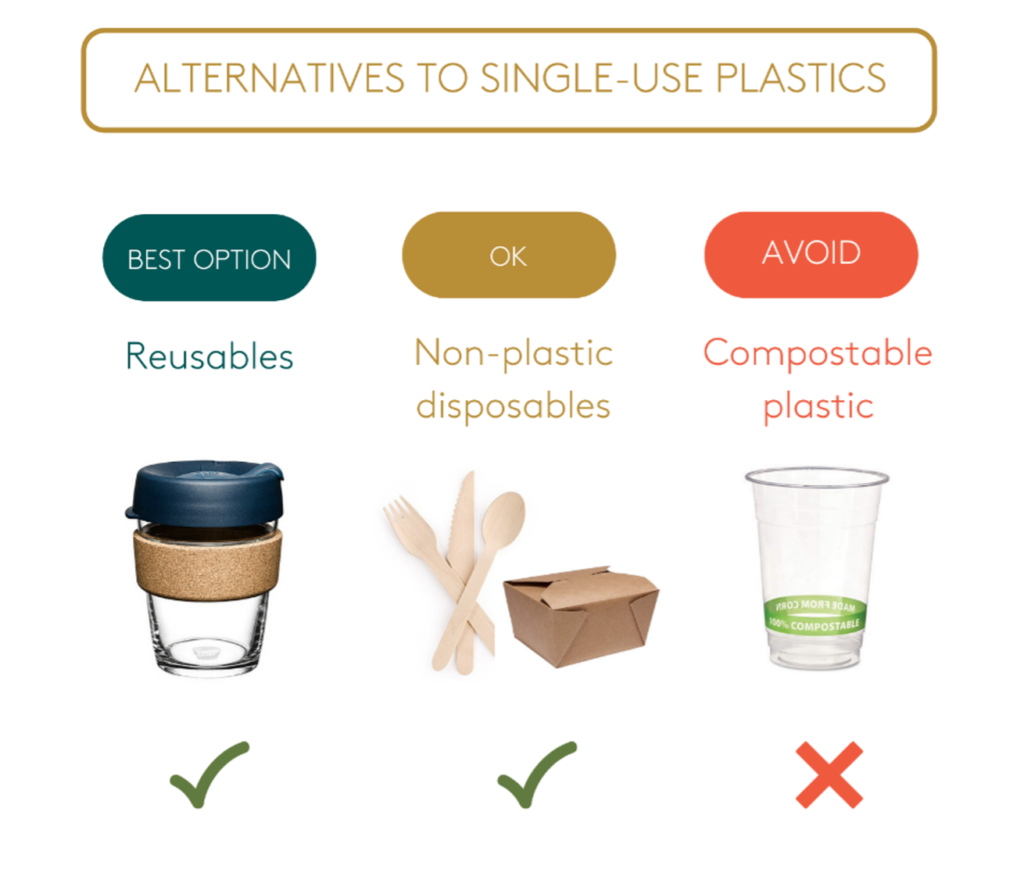
Reconsider compostable plastic
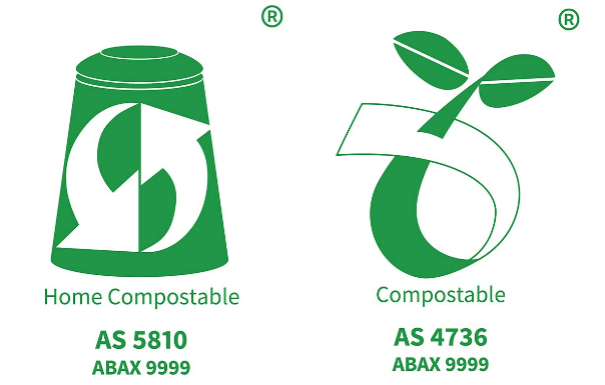
While the ban allows compostable plastic (as long as it meets Australian standards AS 5810-2010 home compostable and AS 4736-2006 commercially compostable), this isn’t a very sustainable option. These items require some pretty advanced equipment to be converted from plastic rubbish into compost. In Brisbane, when you throw out a compostable plastic item like the bio cups often used at events, it probably won’t end up in a facility that can actually convert this to compost. This type of plastic item isn’t suitable for your yellow recycling bins, and must be disposed of in a dedicated commercial compost bin. So, despite your good intentions, the ‘compostable’ item could end up in landfill where it can take much longer to decompose. If you really do need to use compostable plastic items, keep a dedicated commercial compost bin onsite and encourage customers to return all compostable plastic items to that bin. Check out Compost Connect to see how these types of services work.
Finally, all compostable plastics in Australia need to have the appropriate Australian standards labels. Many items labelled as ‘biodegradable’ or ‘compostable’ are not according to Australian standards, so this is good to keep in mind when making orders from your supplier.
You can find more information on the Plastics Ban here, as well as from the National Retail Association.
Where to next?

A guide to rechargeable batteries
While it’s financially tempting to buy the cheapest type of disposable battery, it cost effective in the longer term to opt for rechargeable, and the planet will thank you for it.

